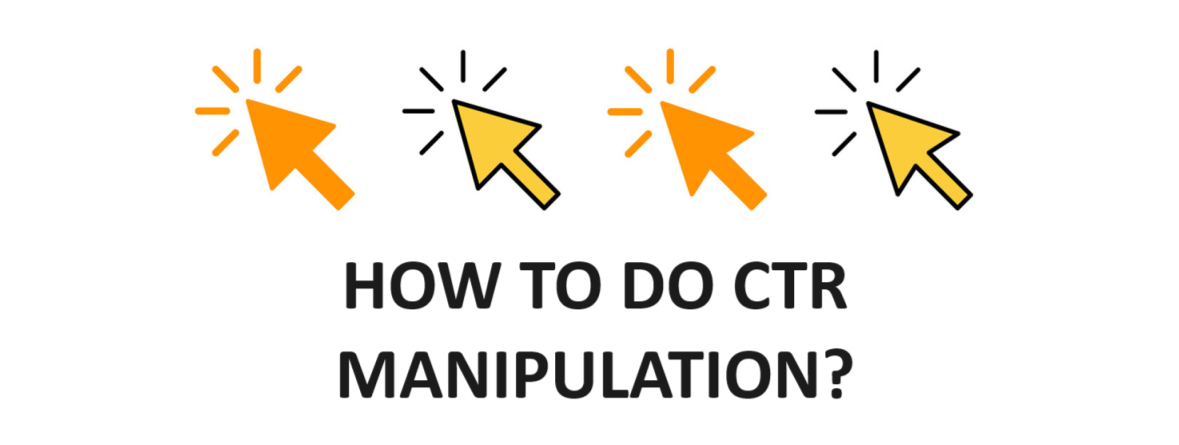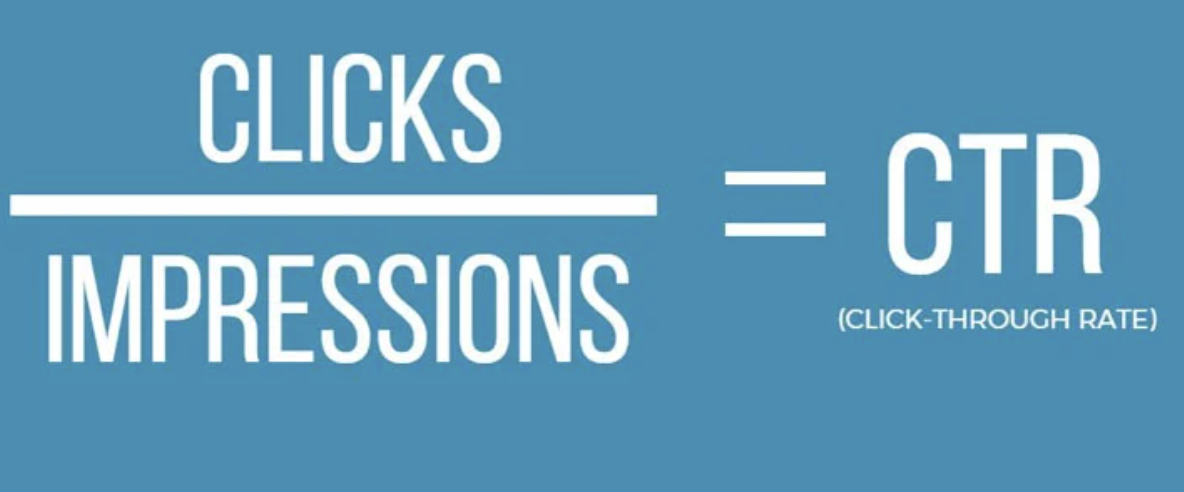LinkDaddy CTR Manipulation: Specialist Providers to Raise Your Click-Through Fees
LinkDaddy CTR Manipulation: Specialist Providers to Raise Your Click-Through Fees
Blog Article
Checking Out the Connection In Between CTR Control Providers and Customer Behavior
In the world of digital advertising and marketing, the impact of click-through rate (CTR) adjustment services on individual actions remains a complicated and intriguing subject. As on-line systems progressively count on CTR metrics to measure the success of content, items, and solutions, recognizing how these controlled prices influence user interaction and decision-making procedures is extremely important. The interplay between CTR manipulation and individual habits elevates concerns concerning credibility, credibility, and the honest ramifications of such techniques. By exploring the elaborate connection in between CTR manipulation services and user behavior, interesting insights emerge that may reshape our understanding of digital advertising methods and their effects on customers.
Effect of CTR Manipulation on Behavior
Analyzing the impact of Click-Through Price (CTR) control on individual habits reveals important insights into the dynamics of online engagement. CTR adjustment includes artificially blowing up the variety of clicks on a specific link or promotion to trick users and search engines. This technique can cause a distorted assumption of a website's popularity or significance, ultimately influencing individual behavior.

Moreover, CTR manipulation can skew the information used by algorithms to individualize user experiences. This can lead to customers being served material that does not straighten with their preferences or rate of interests, inevitably resulting in a decrease in user fulfillment and engagement. Recognizing the impact of CTR control on customer behavior is necessary for maintaining openness and count on in on the internet communications.
User Interaction With Adjusted CTR
User involvement with controlled CTR information frequently brings about skewed understandings of on the internet web content appeal and importance. When customers engage with material based upon unnaturally filled with air Click-Through Fees (CTR), they might think that specific info, products, or services are much more prominent or trustworthy than they actually are. This can result in users making decisions based on deceptive information, leading to potentially unfavorable outcomes.
Engagement metrics like sort, shares, remarks, and time invested on a web page are commonly affected by CTR control. Users might be extra likely to engage with content that appears to have higher engagement rates, even more perpetuating the cycle of manipulated assumptions. Because of this, material makers and marketers may prioritize generating material that produces high CTR instead of concentrating on producing genuinely valuable and relevant product.

Mental Effects of CTR Adjustment

In addition, the emotional results of CTR control can likewise materialize in modified decision-making processes. Individuals might be a lot more likely to click web content entirely based upon its regarded appeal, instead than its real value or importance to their needs. This behavioral change can lead to a surface involvement with on the internet content, where customers may forget top notch but much less prominent offerings for those with synthetically boosted CTRs.
Fundamentally, the emotional ramifications of CTR manipulation highlight the value of maintaining openness and authenticity in on-line interactions to cultivate genuine customer engagement and trust fund.
Ethical Factors To Consider in CTR Manipulation
Taking into consideration the honest implications of controling click-through rates (CTR) in on-line platforms is necessary for preserving honesty and count on within the digital ecological community. CTR control elevates issues concerning tricking users, misshaping look at this website data analytics, and compromising the credibility of on-line material. One major moral consideration is the prospective impact on customer freedom and decision-making. By artificially blowing up CTR, users might be misguided into clicking web links or advertisements they would not have selected otherwise, leading to a disingenuous online experience. CTR manipulation can skew the performance metrics that companies depend on to make calculated decisions, eventually impacting hop over to here market competitors and customer depend on.
An additional moral aspect to consider is the fairness of manipulating CTR to gain an unreasonable benefit over rivals. Taking part in such practices not just goes against concepts of fair play but additionally weakens the count on that users position in on the internet platforms. It is vital for companies and digital marketers to promote moral requirements in their practices to ensure transparency, reliability, and long-term sustainability in the on-line setting.
Effects for Digital Marketing
CTR control can lead to manipulated data analytics, misdirecting online marketers right into believing that their campaigns are carrying out better than they really are. When users understand that CTRs have been adjusted, it can wear down trust fund in the brand name, leading to long-term unfavorable effects for consumer commitment and brand name online reputation.
Furthermore, the usage of CTR adjustment solutions can produce an unjust affordable landscape, where business that take part in such practices gain a man-made advantage over those that follow ethical marketing standards. This can suppress development and creativity in electronic advertising and marketing, as success comes to be even more regarding manipulation tactics than supplying real worth to consumers. Ultimately, the effects of CTR adjustment for digital marketing extend past short-term gains, impacting the total sustainability and credibility of advertising and marketing initiatives in the digital realm.
Conclusion
Finally, the partnership in between CTR adjustment solutions and customer actions is intricate and diverse. The effect of CTR adjustment on habits, user engagement with adjusted CTR, emotional effects, ethical considerations, and ramifications for digital advertising and marketing all play a duty in shaping this partnership. Recognizing these dynamics is essential for marketing professionals and researchers alike in order to browse the ethical ramifications Read Full Article and make the most of the performance of their digital advertising strategies.
Report this page